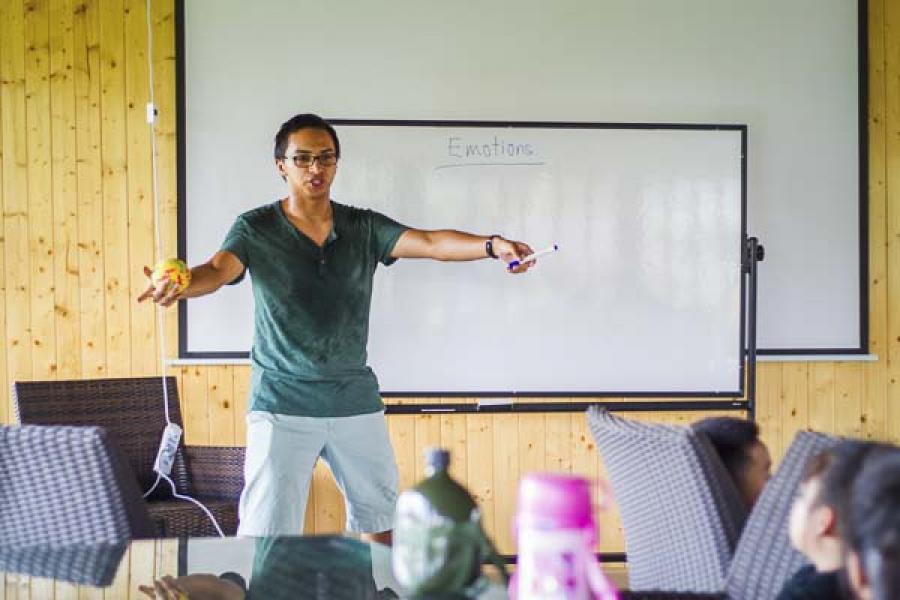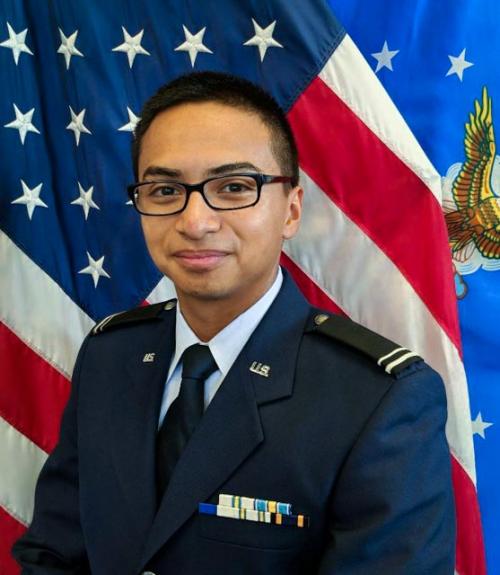Miguel Soto Tapia
English
Schaumburg, IL
What is your main extracurricular activity and why is it important to you?
I split my time between being a student manager at Cornell Catering and as a cadet in Air Force ROTC. Both helped me get rid of my fear of the world and taught me valuable skills about management and empathy; I am grateful to these institutions for accepting me and helping to build me into what I have become.
What Cornell memory do you treasure the most?
There was nothing like receiving acknowledgement for my love of language; not skill, but passion. Ernesto Quiñonez asked me to speak to him after our first workshop in his Intermediate Narrative class my sophomore year, and he asked me, "Miguel, I know you love language. What do you want to do with it?" And subsequently all other times this passion was identified: with Professor Joanie Mackowski asking me to forgive her "harsh" criticism because of my potential, Professor Mary Redmond always asking me how I'm going to accomplish my dreams as a writer, to Dr. James Purdon at the University of St. Andrews admitting that my writing was very good even if my argument was all over the place, and certainly Professor Johnathan Culler's praise for a Robert Frost imitation. There's nothing like sharing a passion!
My world expanded in ways unthinkable. My brother went to college part time, community college then transferring into a four-year college. It took him over a decade to complete his degree, having started a family early in his life and having to work. But he was my intellectual inspiration and all I knew about college came from him. I was essentially "dropped" into Cornell knowing absolutely nothing other than knowing academics was important. Having studied English, traveling to Europe and China, getting involved with Cornell Catering, the military, The Cornell Sun, all have helped me better navigate the world. I think Cornell tore my rigid, pre-existing beliefs and they will probably forever remain in a limbo state of uncertainty, with a willingness to change, but I think that is a good thing.
If you were to offer advice to an incoming first year student, what would you say?
Be honest with yourself. A lot of the advice is, "put yourself out there," "try something new," etc., but do what feels right to you. It can feel uncomfortable of course, but just know why and to what extent you want to do something. Some practical advice is, also reach out to someone. I did and it changed my academic trajectory completely.
How has your Cornell education and experience prepared you to deal with the challenges and uncertainty of the coronavirus pandemic?
Knowing your place: the university taught me to leave certain things up to experts, to "stay in your lane" and to trust credible authority figures. It has also taught me to read news with a critical eye. The Air Force has also taught me about the value in positivity, social good and actionable strategies.





